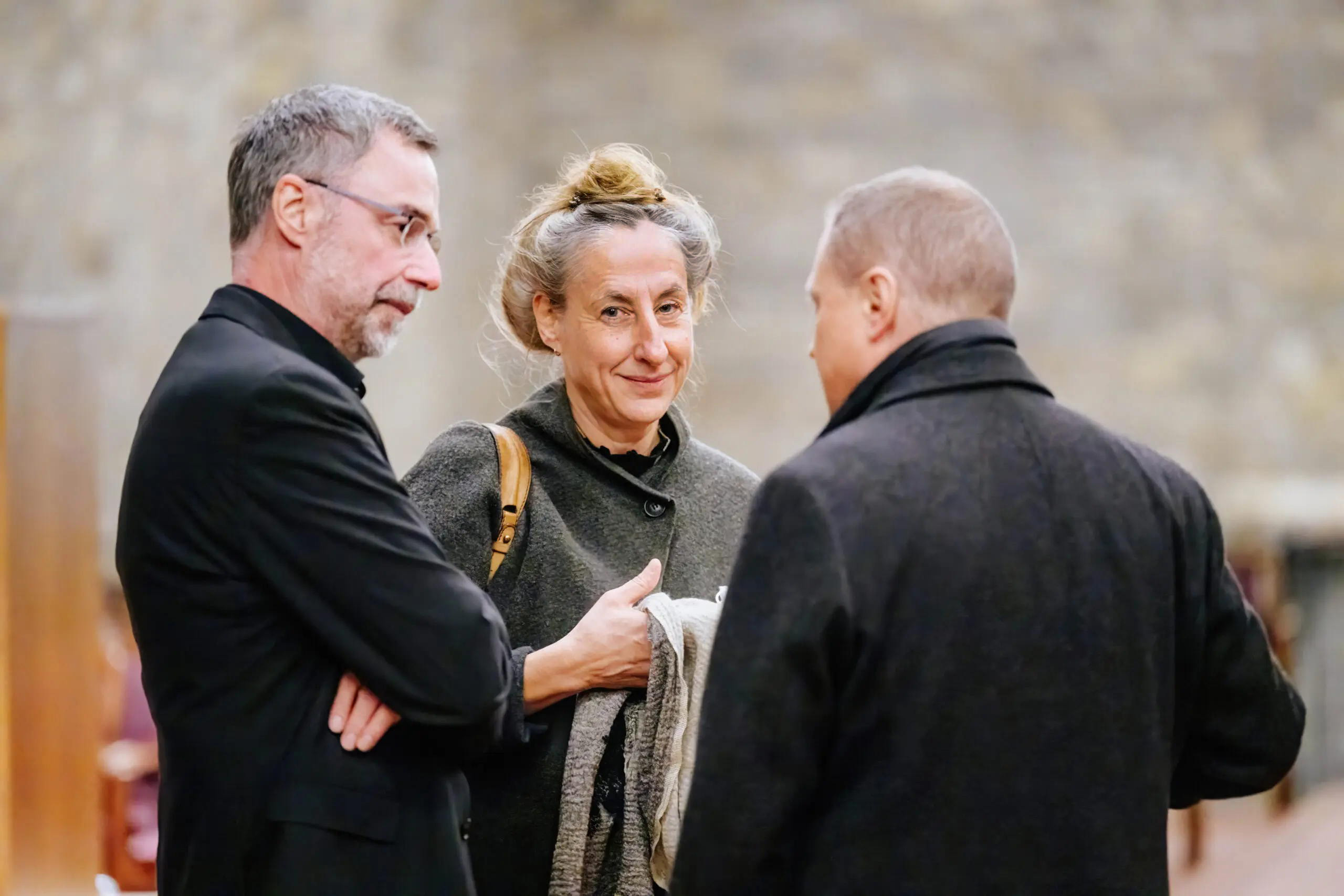Judith Hermann has been writing critically acclaimed short stories and novels for almost three decades. Having burst onto the literary scene with the 1998 collection The Summerhouse, Later, she is known in her native Germany as a leading voice of a generation of women authors. With her elegant and coolly detached style she manages to be both elusive and psychologically revealing.
Hermann’s latest book, We Would Have Told Each Other Everything, originated as a series of invited lectures delivered at Goethe University to an audience of “German literature students, serene middle-class intellectuals and thorny publishing professionals.” Lectures they may have been, but didactic they are not.
The three extended pieces reflect on writing, narrative and memory but also explore Hermann’s personal history. The first pivots on the charismatic figure of Ada, who became part of her free-spirited chosen family as a young adult but later drifted away. The second examines Hermann’s birth family, focusing on her brooding and judgemental father, who is for a time hospitalised for depression. The third, set during the pandemic, addresses the impossibility of full disclosure, to readers and close friends alike.
The recurring preoccupation is the question of what narratives omit. It is often what has been left out that is central to the story, whether that omission is inadvertent or artful. Echoing the advice of her psychoanalyst — that a dream should be written down on three successive mornings and its meaning read from what the last version has erased — Hermann drafts and redrafts her work until the key element may have been removed. It endures all the same, she says, like the lingering presence of someone who has left a room. The missing centre of the story can only be intuited.
Claims such as these might sound mystical or needlessly abstract, but to Hermann they describe a deliberate writing practice. Her stories originate in what is indefinite, unsaid or absent, sensed rather than known, something she describes variously as a ghost or a black hole. “Lines that lead into a story come from the in-between world; they are shifty, open to interpretation, open to change.” Citing a brutal review of a previous book that charged her with being unable to write and having nothing to tell, she agrees that she can’t tell the story of what actually happens because it is ungraspable. All she can write about is that inability to grasp it fully.
Hermann may deny her capacity to wrangle the truth, but her book is highly evocative, especially when it comes to places and objects. Summers on the northern coast spent with her communal band of friends and free-ranging children are as beautifully rendered as the gloom and chaos of her parents’ house. Flowers and candles make frequent appearances, as do perceptions that convey devastation, such as overheard screams on the psychiatric ward. The experience of the pandemic is likened to living underwater while “the world passes heavily over you.” The essence of a dream “is not the content or the plot; it’s the feeling with which we dream it,” and a dream-like, atmospheric feeling pervades this book.
Hermann’s views on writing’s inability to grasp what exists parallels an approach to life that holds others at a distance. Her pandemic friend Jon complains of her secretiveness and hopes for a time when they will be completely open to one another. She counters that full disclosure is neither possible nor desirable. This assertion may spring from a coherent sceptical philosophy but it also reveals a melancholic sense of loss and isolation. “Writing imitates life, things disappearing, images constantly left behind, falling out of focus, sputtering out. But the autonomous decision in favour of those omissions… makes it easier, balances out anguish and grief over loss and time elapsed.”
The social dimension of this worldview is an odd mix of connection and disconnection. Hermann has a web of close personal relationships but insists on her fundamental separateness, as if seeing others through a transparent membrane. The dissolution of her early peer group goes unmourned, and the loss of Ada’s friendship is written off with an admission of ambivalence and distrust.
Repeatedly quoting Turgenev’s statement that we are all “alone like a finger” — itself an odd expression when the average finger has three friends and one close acquaintance — Hermann acknowledges that her own self-containment has a painful history. “I’m the traumatised child of a depressive father,” she tells Jon. “I come from a family of mad people, I have to conceal the myriad symptoms of mental illness from the world, or at least I think I do.” It was writing that “separated me from everything, that… isolated me,” she writes, but her family history may have set the process in motion.
Hermann’s lack of sentimentality about other people extends to the past. Thinking back to the idyllic summers by the Baltic Sea, she remembers that “we wanted a permanent present day, as much of it as possible,” but also that no one seemed curious about each other’s past. This period was “a second childhood… an evasion of adult life.” The same embrace of maturity over youth can be found in her approach to her craft. Writing becomes sharper and more thoughtful with age, she suggests, shifting away from taken for granted beliefs.
That decentred perspective and questioning attitude towards commonsense realism makes We Would Have Told Each Other Everything a captivating, one-of-a-kind read. Hermann has said that if she knew her lectures would become a book she would not have written it. Thank goodness her words found their way out of the theatre, onto the page and into the English language, courtesy of Katy Derbyshire’s lucid translation. •
We Would Have Told Each Other Everything
By Judith Hermann | Granta Magazine Editions | $26.99 | 208 pages




